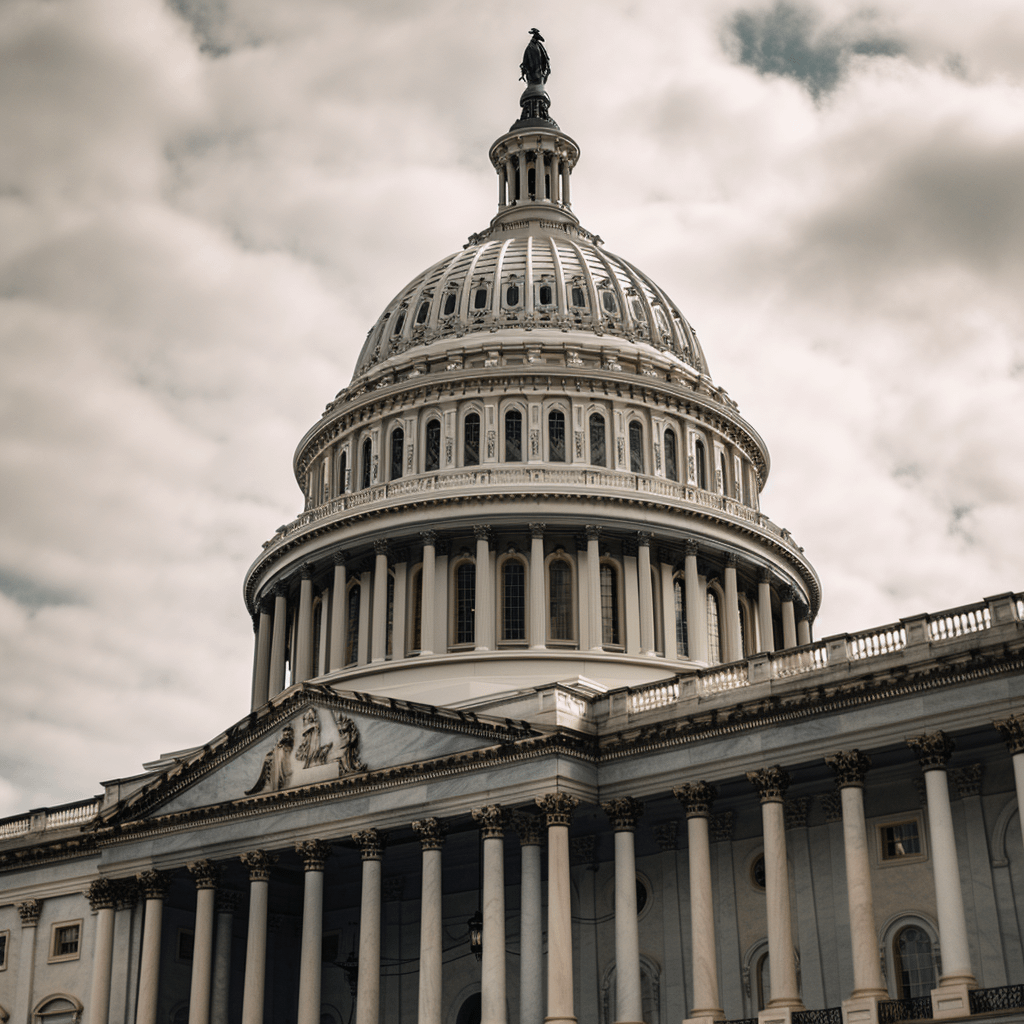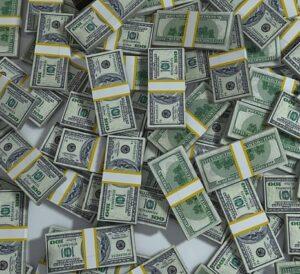Commodities fraud is a particularly complex area of financial white collar crime that is reportable under federal law. Since 2019, the Department of Justice has recovered over $1.1 billion in commodities and securities fraud settlements from major US corporations such as JPMorgan Chase, The Bank of Nova Scotia, Merrill Lynch Commodities, Deutsche Bank AG, Tower Research Capital, Propex Derivatives, and NatWest Markets.
In recent years since the COVID-19 crisis, commodities fraud has become even more common. Scam artists have taken advantage of ongoing supply chain shocks and economic instability to attempt to manipulate market conditions for their own personal gain. Speaking up about this kind of financial fraud can result in whistleblowers receiving substantial rewards in exchange for their honesty, and can also prevent dangerous market manipulations.
If you have information about commodities fraud, contact a commodities fraud attorney today with the experts at Tycko & Zavareei LLP. Our qui tam lawyers are available for a complimentary, confidential consultation about the specifics of your case.
What is the Commodity Exchange Act of 1974?
In 1974, Congress created the Commodity Futures Trading Commission with the passage of the Commodity Exchange Act. Previously, the exchange of commodities and futures was overseen by the US Department of Agriculture. This new law was signed into place by President Gerald Ford. It greatly expanded the regulatory power of the federal government over commodities by including the sale and trade of futures. It also expanded the scope of commodity regulation past the field of agriculture, into the realm of energy, metals, and more.
How Are Commodities Manipulated?
When there is a possibility of financial gain, there tends to be a potential for fraud right alongside of it. Unfortunately, the commodities market is particularly susceptible to manipulation, even though so much of it depends on the availability of physical goods. The following are certain common techniques that may be used in attempts to manipulate the prices and structuring of commodities:
- Front running: When one party makes a sale or trade based on non-public information that will greatly affect the market, it is known as front-running. One example is a scientist who discovers a blight that will affect a season’s crop of corn. If, in lieu of or ahead of disclosing this crucial information they make a financial decision about their investments in the corn commodities market, they may be guilty of front-running.
- Cornering: Monopolies are often accused of cornering the market on a good or commodity. For instance, if one company or party acquires total control of a commodity and then attempts to dictate the rate for which it can be acquired, this is an example of cornering.
- Wash trading: Wash trading is a method of manipulation that seeks to artificially inflate or deflate market price. Wash trading often involves an investor giving false orders to buy or sell commodities in order to create the appearance of demand.
- Benchmark distortion: Benchmark distortion is all too common in specialized areas of commodities and futures trading. Benchmark distortion occurs whenever experts manipulate key or “benchmark” information that helps determine pricing. This misinformation affects prices illegally.
- Pump and dump schemes: Pump and dump scams occur whenever a party uses false promotion to make a commodity or security seem more popular or desirable than it actually is. They then “dump” their investment and flood the market with shares that do not reflect the value that they were supposed to hold. Pump and dump schemes often involve celebrity endorsements or other flashy elements that make a commodity seem particularly valuable to the average investor.
- Pinging: Pinging is often done by companies who are seeking to gain a broader understanding of their competitors in the market, as well as manipulate their own commodities’ pricing. Pinging is a market manipulation tool that involves sending out and then quickly canceling a large number of smaller orders. Doing so takes the market’s temperature on buying/selling stances, and can also have an artificial effect on pricing.
What Are Examples of Commodities Fraud?
Common commodities fraud examples include the manipulation of available goods for personal gain. When supply is limited, demand rises. When this happens naturally, it is not an example of fraudulent economic activity. However, attempts to artificially create the illusion of scarcity, inflate prices of commodities, or distort legitimate benchmarks are all ways that companies, traders, and investors can commit fraud.
Price Rigging
In a 2021 case involving price rigging, an oil trader attempted to manipulate the price of fuel in the Port of Los Angeles. This market manipulation scheme tried to take advantage of ship owners and those seeking to refuel at this particular commercial port, one of the busiest in the United States. Additionally, this commodities manipulation attempted to artificially sway the cost of oil throughout the larger California market.
Acting Assistant Attorney General Nicholas L. McQuaid of the Justice Department’s Criminal Division said about the case, “The defendant and his co-conspirators unlawfully manipulated the fuel oil market for their own gain by creating artificial prices that undermined the legitimate forces of supply and demand in one of our nation’s key commodity markets.” The Assistant Inspector in Charge continued, “Individuals profiteering, through the manipulation of daily price assessments of a valuable commodity, fuel oil, prior to the purchasing or selling of it, goes against the most fundamental concepts of a supply-and-demand market economy.”
Misappropriating Information
Before the 1997 Supreme Court decision in US v. O’Hagan, 521 US642 (1997), misappropriating information may not have been considered to be quite the same as financial fraud. This landmark case expanded what may now be considered embezzlement.
Since this Supreme Court decision, misappropriating information in commodities is understood to be a form of insider trading. The standard for fraud is even more stringent in misappropriation theory than in general insider trading. Insider trading occurs when a party makes a financial decision based on private, protected information, and when they have a fiduciary duty to the company in which they buy or sell shares or commodities. By contrast, under misappropriation theory, fraud may be committed even if the trader does not have a fiduciary duty to the company. Having insider knowledge and acting upon it is enough of a standard for fraud under misappropriation theory. Trading may not be done on the basis of material non-public information, according to the Securities and Exchange Commission’s Rule 10b5-1.
What Are Wash Sales in Relation to Commodities Fraud?
Wash sales are sales made with the sole and express purpose of misleading the public and manipulating pricing. Wash trading was outlawed in the commodities market in 1936 with an amendment to the Grain Futures Act, an early piece of financial regulation legislation. Prior to the 1930s, investors could cash in on this common pump and dump scheme. By buying and selling shares early on, investors make it seem as though there is heightened interest in a commodity. This activity aims to increase sales and allow investors to short sell, flooding the market.

Another common warning sign of wash sales is selling too soon after investment. The IRS defines a wash sale as one that occurs within 30 days of purchase and results in a loss. Losses from wash sales are not tax deductible.
Violating Bids or Offers as Part of a Commodities Fraud Scheme
Spoofing, or placing offers to buy or sell with the intent of canceling at the last minute, is another kind of commodities fraud scheme. Spoofing, like wash sales, are an attempt to create the illusion of legitimate market interest in a commodity. Doing so is a smokescreen that makes it seem like an investment is a sure bet, when in reality all of the activity behind it is pre-planned to simulate real buzz. The development of automation and computer-based sales activity has led to increased reports of spoofing with the CFTC, as in this $1.4 million fraud scheme.
According to the CFTC Whistleblower bulletin Blow the Whistle on Spoofing in the Commodities and Derivatives Markets (January 2020), the following red flags are of particular interest to the Commission when it comes to reporting spoofing:
- “Manual and automated trading schemes that place and quickly cancel bids and offers in futures contracts in order to benefit other orders and/or positions
- Orders being quickly placed and canceled at or near the best bid or offer, especially if opposite-side orders are filled
- Multiple orders of the same size repeatedly and simultaneously being placed and canceled
- Any scheme designed to cause prices to artificially move.”
Commodities Fraud Involving Price Manipulation
Price manipulation in commodities fraud often involves the buying and selling of futures. Determining valid shifts in supply and demand from attempts to profit off of price manipulation is a complicated area of financial regulation. For instance, when Texas cotton broker William Clayton testified before the Senate in 1928 about commodities fraud, he slyly proclaimed that “the word manipulation . . . in its use is so broad as to include any operation of the cotton market that does not suit the gentleman who is speaking at the moment.” Deciding what is and is not price manipulation therefore depends on a series of precedents as well as understandings about motivation, availability, and market distortion.
It is important to understand that price manipulation is intentional, and is done in order to shift market prices away from their genuine values. Price manipulation is of great concern to the federal government because it creates an inefficiency in the use, availability, and allocation of crucial natural resources. Cornering, squeezing, “banging the close,” and insider trading may all be considered to fall under the umbrella of price manipulation.
What is Spoofing Commodities?
Spoofing is both a civil and criminal matter. Spoofing as market manipulation is subject to up to 10 years imprisonment per violation.
According to the CFTC Interpretive Guidance and Policy Statement on Disruptive Practices, “spoofing” may include any and all of the following activities, and is not limited to the subsequent definitions:
- “Submitting or cancelling bids or offers to overload the quotation system of a registered entity
- Submitting or cancelling bids or offers to delay another person’s execution of trades
- Submitting or cancelling multiple bids or offers to create an appearance of false market depth
- Submitting or canceling bids or offers with intent to create artificial price movements upwards or downwards.”
Carbon Credits Fraud

When companies misreport compliance, make fraudulent statements, or attempt to manipulate this environmental commodities market, they can be prosecuted for fraud. Whistleblowers who report on violations of the Commodity Exchange Act with regard to carbon credits fraud can help protect the environment, hold corporations accountable, and earn a substantial reward.
Some examples of carbon credits fraud that are reportable to the CFTC include:
- Manipulative and wash trading in carbon market futures contracts
- Ghost or illusory credits listed on carbon market registries
- Double counting or other kinds of reporting fraud
- Fraudulent statements relating to the quality, quantity, additionality, project type, methodology substantiating the emissions claim, environmental benefits, the permanence or duration, or the buffer pool
- Manipulation of tokenized carbon markets
Who Regulates Commodities?
Commodities fraud schemes are investigated and regulated by the Commodity Futures Trading Commission (CFTC). This federal division is akin to the Securities and Exchange Commission (SEC), which regulates security futures.
CFTC Whistleblower Program
In addition to regulating the sale and trade of commodities, the CFTC also operates the CFTC Whistleblower Program. This initiative rewards commodities fraud whistleblowers with monetary incentives in exchange for information that helps with the discovery and prosecution of futures fraud. Since its inception in 2014, the CFTC has awarded approximately $330 million to commodities fraud whistleblowers. The CFTC has also collected more than $3 billion in sanctions, recovery, and settlements associated with commodity futures fraud enforcement.
 CFTC Commodities Fraud Whistleblower Rewards
CFTC Commodities Fraud Whistleblower Rewards
In order to qualify for a CFTC whistleblower reward, the final judgement or settlement in the case must reach at least $1 million. Tips must be original, previously undisclosed information that is submitted voluntarily to the CFTC Whistleblower Program. Whistleblowers are eligible to receive anywhere from 10-30% of the final settlement amount in the event of a successful case.
Protections for Commodities Fraud Whistleblowers
Retaliating against a CFTC whistleblower is prohibited by the Dodd-Frank Act. A commodities fraud lawyer can help you file a lawsuit in federal court if you have been fired, threatened, demoted, harassed, or seen any adverse affect from your employer as a result of your protected disclosure. Possible results from this legal action include:
- Reinstatement at the same seniority level
- Back pay
- Litigation costs
- Expert witness fees
- Reasonable attorney’s fees
Additionally, the CFTC makes every effort to keep the identity of whistleblowers confidential. Filing your tip through a commodities fraud law firm can help ensure an extra layer of protection around your professional and personal identity when reporting financial fraud.
How Do I Report Commodities Fraud to CFTC?
If you have information about someone who is engaged in commodities fraud, report it today. To do so, contact a qui tam law firm experienced in taking on commodities fraud cases. Navigating federal financial regulatory legislation is not the time to hire an untested attorney or unknown firm. Speaking up can help insulate you from liability for this civil and criminal act. It can also earn you a reward from the CFTC Whistleblower Program.
To submit a tip, your legal representation will collect your evidence and build your claim. This can take many forms depending on your role at the company, as well as how you came across the information that you have to disclose. You will then submit a tip with the CFTC Division of Enforcement and fill out a Form TCR in order to qualify for the Whistleblower Program. Failing to do so may mean that you do not qualify for protections against retaliation or a possible share of a successful settlement. For this reason and others, it is imperative to work with an attorney who knows what steps need to be taken in order to qualify you for a reward before your information is reported by another party. Once information has already been submitted as a tip to the CFTC, it becomes ineligible for a reward.
Notable Commodities Fraud Cases
As recently as March 2022, the CFTC awarded approximately $12,125,000 to seven whistleblowers for support leading to successful commodities fraud enforcement actions. One whistleblower earned $10 million for coming forward “at the earliest stages of the investigation.” Another four CFTC whistleblowers were awarded $625,000 for information that supported ongoing investigations. Reporting fraud is always the right thing to do. You never know when your information may be the missing piece that leads to a full recovery, and a successful whistleblower payout from a substantial settlement.
The Commodity Futures Trading Commission also awarded its largest-ever single whistleblower reward to an individual who shared information on fraud involving Deutsche Bank AG. This commodity futures fraud case involving benchmark manipulation led to a $3 billion settlement. The whistleblower was awarded $200 million for their help with the case.
Commodities Fraud Attorney: FAQs
What is commodities exchange in simple words?
Commodities exchange is usually a trade of futures contracts, instead of the physical goods themselves. One example of commodity futures exchange is an investor who agrees to buy an amount of crude oil at a set price on a specific date. Commodity futures rates are different from current trading rates. A commodity exchange may refer to the financial decision, or to the area where trades take place, like the New York Mercantile Exchange.
Are commodities regulated by the SEC?
No. The Commodity Futures Trading Commission (CFTC) regulates commodity trades and futures.
What is the difference between a future and a commodity?
Futures and commodities are interrelated, but not the same. Commodities are tangible goods that are usually traded using futures. A future is the financial contract that governs the price and details of how a commodity will be traded.
What are the penalties for commodities fraud?
Civil penalties for commodities fraud can include fines of up to $1 million as well as restitution.
How can a qui tam attorney help report commodities fraud?
Commodities fraud cases can be complex financial and legal matters that stretch across state lines. Commodities fraud lawyers are experts in communicating with the CFTC Division of Enforcement to ensure that whistleblowers build the strongest possible claim for a reward.
A qui tam attorney can not only help submit your initial tip, they can also follow up on the case which may take months to years of investigation before it is resolved. Finally, filing through a qui tam law firm protects your anonymity and professional reputation when blowing the whistle on commodities fraud.
Contact a Commodities Fraud Lawyer Today
If you believe you may be able to add valuable information to a commodities fraud case, or submit a tip that can blow the whistle on market manipulation, do so at once. Waiting only allows time for you to be implicated in this serious financial crime that is punishable by hefty fines and imprisonment. You also risk another party reporting your tip before you can come forward, and receiving your potential whistleblower reward. Once a tip has been previously reported, it is not eligible for protection or rewards from the CFTC.
If you need help with your CFTC whistleblower claim, contact the expert commodities fraud whistleblower lawyers with Tycko & Zavareei LLP today to begin.




 CFTC Commodities Fraud Whistleblower Rewards
CFTC Commodities Fraud Whistleblower Rewards